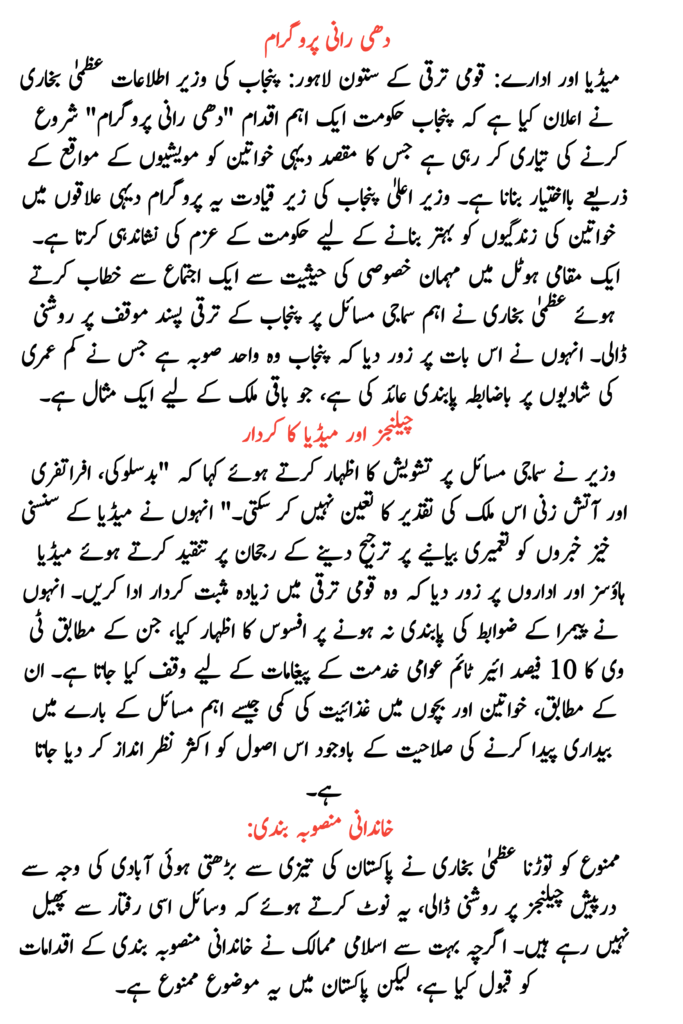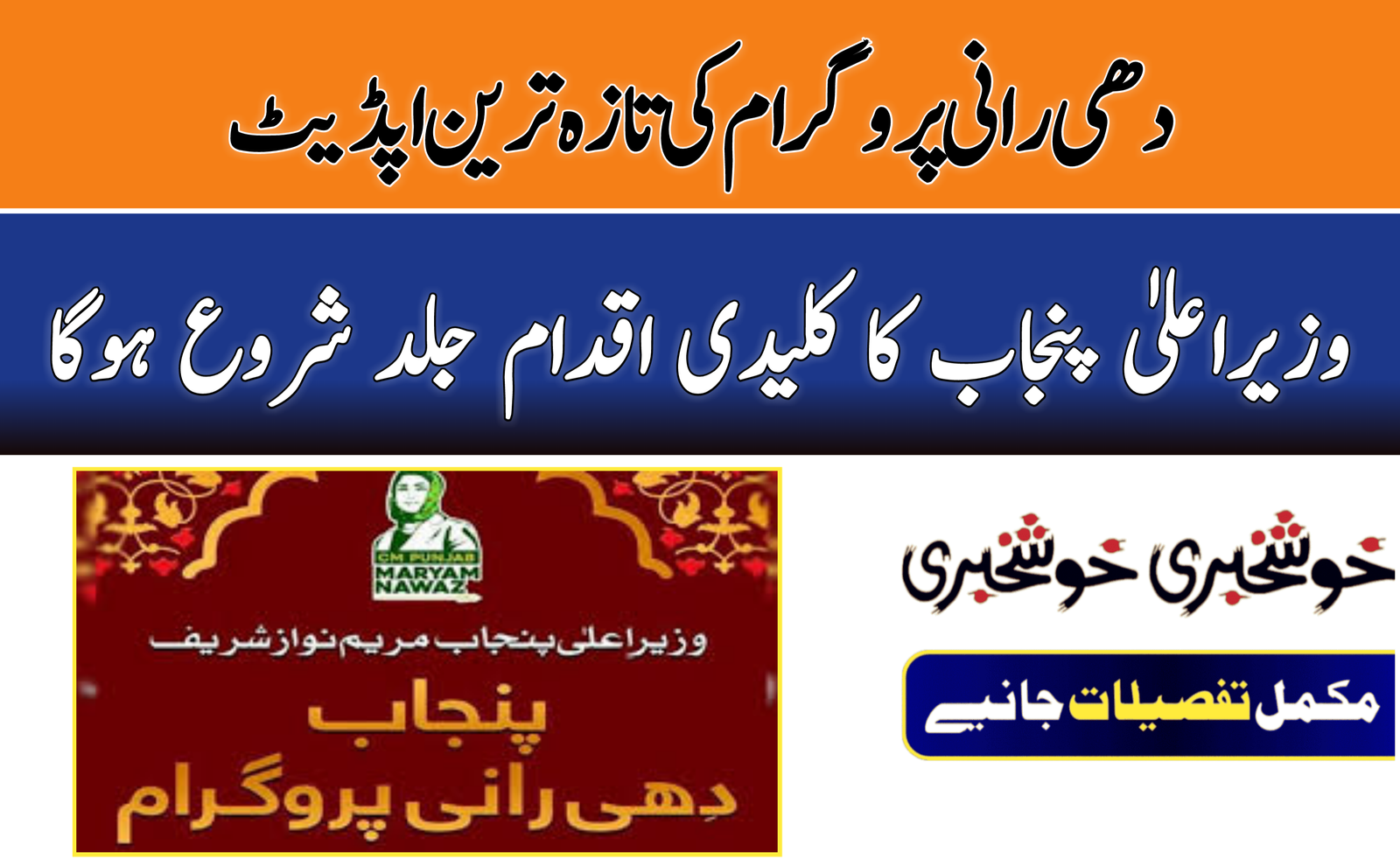Dhee Rani Program
- Media and Institutions: Pillars of National Progress
LAHORE: Punjab Information Minister Azma Bokhari has announced that the Punjab government is gearing up to launch a flagship initiative, the “Dhee Rani Program,” aimed at empowering rural women through livestock opportunities. This program, spearheaded by the Chief Minister of Punjab, underscores the government’s commitment to improving the lives of women in rural areas.
Addressing a gathering as the chief guest at a local hotel, Azma Bokhari highlighted Punjab’s progressive stance on critical social issues. She emphasized that Punjab is the only province to impose an official ban on child marriages, setting an example for the rest of the country.
Read More: Ehsaas Apna Ghar Scheme
Table of Contents
Challenges and the Role of Media
The minister expressed concern over societal issues, stating that “abuse, chaos, and arson cannot define the destiny of this country.” She criticized the media’s tendency to prioritize sensational news over constructive narratives, urging media houses and institutions to play a more positive role in national development.
She lamented the lack of adherence to PEMRA regulations, which mandate that 10% of TV airtime be dedicated to public service messages. According to her, this rule is often ignored, despite its potential to raise awareness about crucial issues such as malnutrition among women and children.
Read More: Verify Your Benazir Kafalat Status

Family Planning: Breaking the Taboo
Azma Bokhari shed light on the challenges posed by Pakistan’s rapidly growing population, noting that resources are not expanding at the same rate. While many Islamic countries have embraced family planning initiatives, the topic remains taboo in Pakistan. She emphasized the need for open dialogue on family planning, urging politicians to prioritize such discussions over their political agendas.
She also shared her personal experience with resistance while drafting the Domestic Violence Bill, including facing religious decrees (fatwas) against her. Despite these challenges, she remains steadfast in advocating for women’s health and family planning, noting that raising fewer children allows for better upbringing and improved health outcomes for mothers.
Punjab’s Progressive Measures for Women
The Punjab government has taken several steps to modernize its approach to women’s safety and empowerment:
- Virtual Police Stations: These stations provide protection to women without requiring them to visit traditional police stations.
- Motorcycle Distribution: Young girls in Punjab are being provided motorcycles to enhance their mobility and independence.
Such initiatives reflect the Chief Minister’s vision to uplift women and strengthen the economy by empowering half of the population.
Call for Collective Efforts
The minister stressed that no government can solve the country’s issues alone. She called for collaborative efforts among state institutions, federal and provincial governments, and society as a whole. By working together and fostering dialogue on key issues like family planning, Pakistan can pave the way for sustainable development.
Read More: Easy Minority Card Registration
Modernization and Changing Society
Azma Bokhari noted that societal modernization has brought new challenges, such as the establishment of old age homes. While these facilities provide shelter, they also highlight the erosion of traditional family support systems.
Conclusion
The “Dhee Rani Program” is a testament to the Punjab government’s dedication to addressing rural women’s needs and enhancing their economic opportunities. Alongside other initiatives, such as virtual police stations and motorcycle distributions, the program aims to create a more inclusive and prosperous Punjab.
Azma Bokhari’s remarks underscore the importance of dialogue, collective efforts, and the media’s constructive role in shaping a better future for Pakistan.

